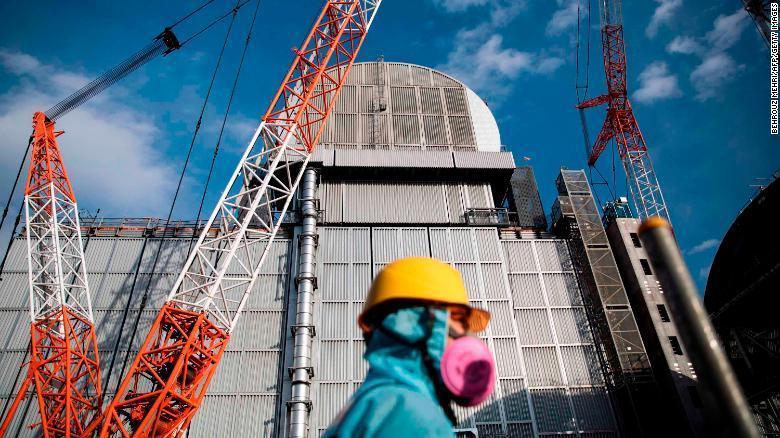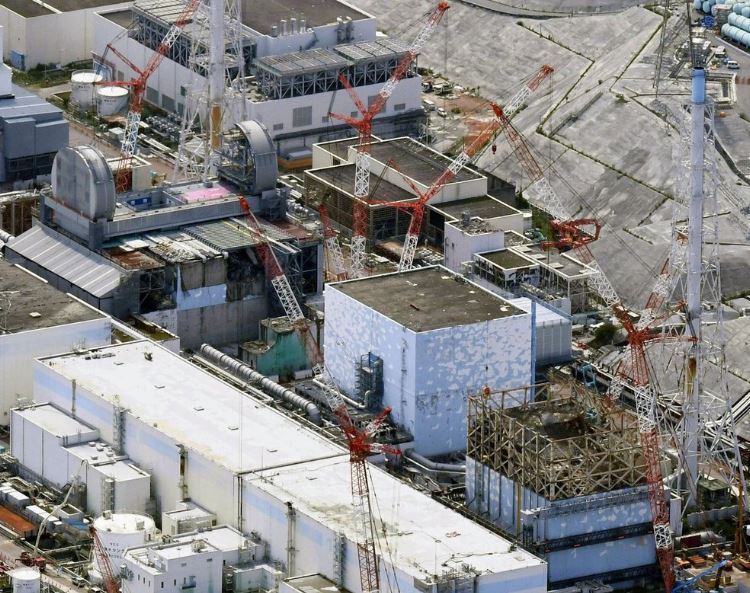South Korea raised concerns at the general conference of the International Atomic Energy Agency in Vienna on Monday about Japan’s plans to dispose of contaminated water from the Fukushima nuclear plant.
Seoul’s First Vice Minister of Science and ICT Mun Mi-ock brought attention to Tokyo’s handling of radioactive water during her keynote speech at the IAEA’s 63rd General Conference.
“Issues concerning the disposal of Fukushima contaminated water still remain unanswered, escalating fear and anxiety throughout the world. In the meantime, high-level Japanese government officials recently started to state that marine discharges are inevitable,” Mun said.

(AP)
“When it is discharged into the ocean, management of Fukushima contaminated water is no longer Japan’s domestic problem, but a grave international issue that can affect the whole global marine environment.”
She called for action on the matter from the 171-member IAEA, saying it was necessary to conduct objective and scientific on-site investigations on the current status of the Fukushima plant and its contaminated water, as well as its impact on the ecosystem.
“Based on the findings, it is important to set up standards and methods for the disposal of Fukushima contaminated water that adhere to IAEA’s radiation protection principles of justification and optimization,” Mun said.
“They must not burden the future generation and be deemed safe by the international community.”
She stressed that the Statute of the IAEA, Article 3, states that the agency is authorized to establish or adopt safety standards to protect health and minimize danger to life and property.
“What we need most is that Japan take substantive and transparent measures and actions” to ensure “health, safety and environment protection,” she said.
Earlier this month the South Korean government sent a letter to the IAEA about the possibility of contaminated water from Fukushima being discharged into the ocean, expressing concern about its impact on the environment.

(AP)
Seoul requested that international organizations and involved countries take a proactive approach to the issue.
A South Korean government delegation of officials from the Science Ministry, the Foreign Ministry and the Nuclear Safety and Security Commission plans to meet with the acting IAEA secretary-general to again request action from the agency.
The IAEA was established in 1956 to promote the use of atomic energy for peace, health and prosperity throughout the world.
It does not have the authority to regulate specific countries, but Seoul believes it could raise international awareness of the contaminated water at the Fukushima plant and draft a joint recommendation.
Since the earthquake and subsequent tsunami that struck eastern Japan in March 2011, contaminated water has continued to accumulate at the Fukushima plant, reaching some 1.15 million tons as of late July.
Tokyo Electric Power Co., the company in charge of the power plant, admitted in 2018 that it had found traces of radioactive tritium in the water even after treatment. Japan stores the contaminated water in water storage tanks.
In addition to Fukushima, in her keynote speech Mun spoke about South Korea’s efforts to achieve the complete denuclearization of the Korean Peninsula and build lasting peace, as well as its projects to improve nuclear safety.
By Kim So-hyun (sophie@heraldcorp.com)







